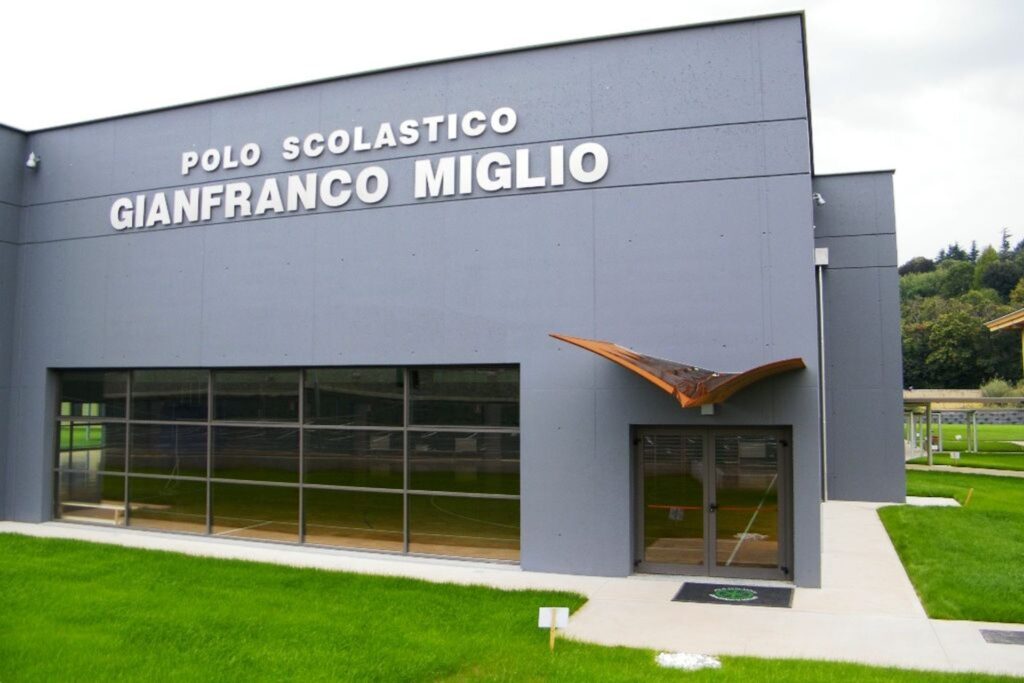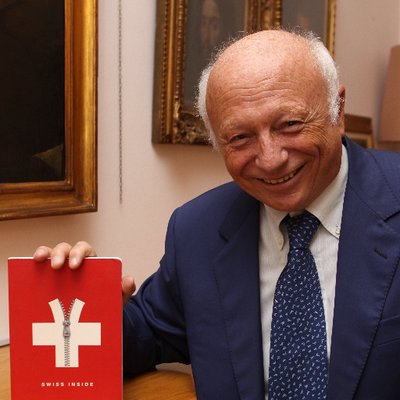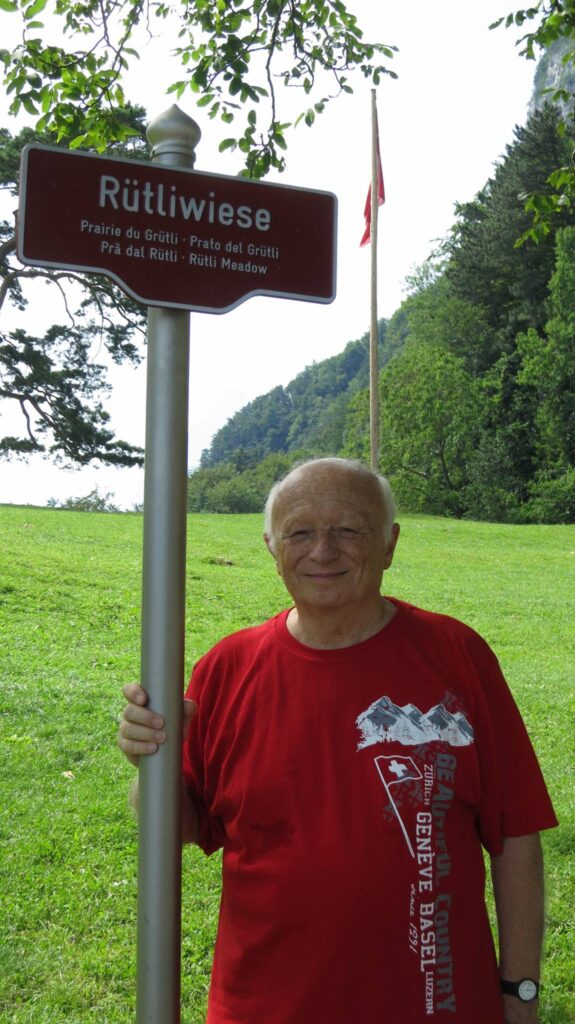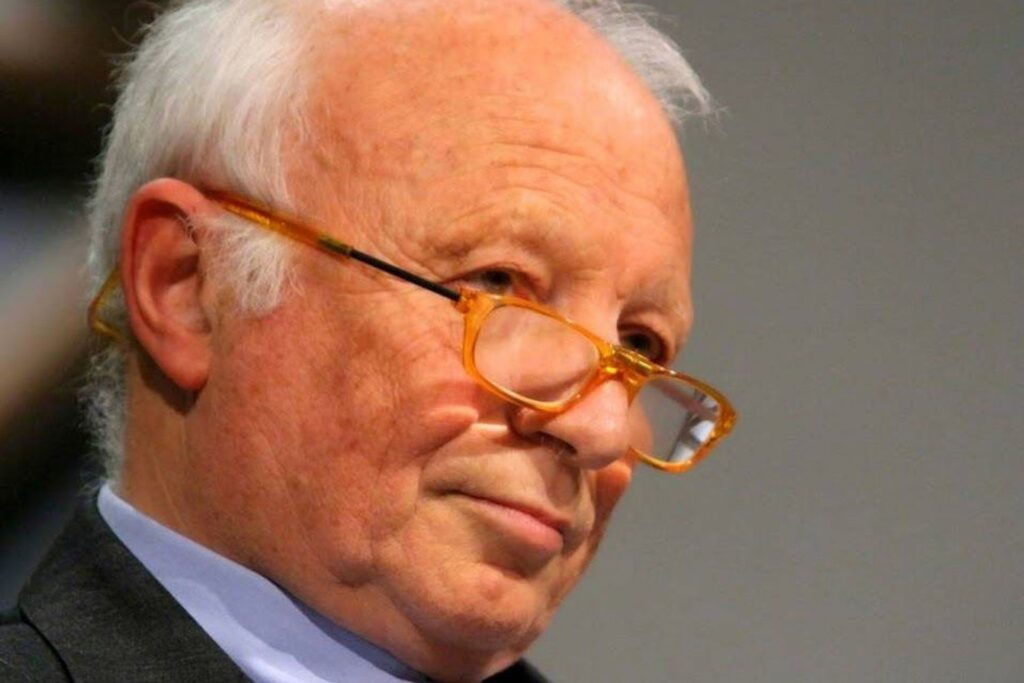Giancarlo Pagliarini: “Federalism would facilitate Italy”
The 79-year-old politician, now active with the “October 22 Network”, remembers Gianfranco Miglio, thinks of the lira for the South and outlines his idea of the State
“Nemo propheta in patria“. This biblical maxim, which the Gospels attribute to Jesus in order to stigmatize the cold reception given to him by his fellow countrymen, can be adapted, without wanting to appear blasphemous, to Carlo Cattaneo and to the federalism that he had proposed as a form of government to organize and administer the Italy in which he was born and lived for many years, in the aftermath of what history books call “unification”.
The choice between the model (the federal one) in which power is freely attributed to the citizens and to the bodies closest to them, and the one in which instead (the centralist one) management is in the hands of power centers run by people who then entrench themselves within them, in the country of Dante Alighieri and Francesco Petrarca, as we all know, went to the second part.
A Barcellona oggi “solo” un milione di persone. Sono con loro e anche loro (come Bossi a Venezia il 15 Settembre 1996) ricordano il Diritto Naturale di Autodeterminazione pic.twitter.com/Di6teXJkAW
— Giancarlo Pagliarini (@vecchiopaglia) September 11, 2021
The debate on federalism, long dormant, has been revived after the end of the Second World War, and especially since the second half of the 80s, when the rise of the Northern League of Umberto Bossi seemed to be able to give way to a process of renewal of the Italian centralist state.
A process that, at a certain point, seemed to be within reach, with the advent of Tangentopoli (bribery scandal) that marked the end of the First Republic and was fuelling the desire for change in large sections of the population.
The government alliance with the newborn party of Silvio Berlusconi in 1994, however, paradoxically, marked the beginning of the end of the propulsive thrust of the Carroccio that, with the passing of the years, gradually began to lose its bite, also due to the betrayal made to the detriment of independentist forces that were pushing to complete the federal revolution also in the South, such as the Lega Sud Ausonia.
Preliminary agreement between the Government and the Emilia-Romagna Region (in Italian)
Preliminary agreement between the Government and the Lombardy Region (in Italian)
Preliminary agreement between the Government and the Veneto Region (in Italian)
Up to the present day with the total abjuration of federalism by Matteo Salvini, with the nationalist turn that, in fact, has literally changed the connotations of what at the beginning was the Lombard League, erasing from the political arena any reference to the form of government closest to the citizens.
We discussed the prospects of federalism in Italy and beyond with Giancarlo Pagliarini, former Minister of the Budget at the time of the first Berlusconi government as well as a leading exponent of the Northern League and the early Lombard League.
Carlo Cattaneo had to go to Switzerland to see his proposal for the organization of the State successfully applied. Why has federalism in Italy, in his opinion, never taken hold?
“Because, here in Italy, politics is not at the service of citizens but tends to manage power. The party system does not care about citizens and it is clear that federalism, which is a transparent reorganization of power, is frowned upon. It is no coincidence that in Switzerland, the President rotates and remains in office for one year, precisely to avoid a too centralized management of power. Until, in this country, we are not able to break the pattern of power management by politics, for us citizens it will always be a tragedy because we will continue to live very badly”.
At the recent local elections, Salvini’s League has suffered a hard setback. Did you expect such a result?
“If I have to tell the truth, yes. In a recent article in the newspaper ‘HuffPost’, the bold headline is ‘The League collapses because Salvini has abandoned the North’. Why should someone from Milan vote for Salvini when, together with Meloni, he wants to take the tax money paid by citizens to Rome, since it is the capital of Italy? Why do this, when the money that goes to Rome is then divided by the politicians so that it can reach the constituencies? It is a total disorganization, in which Salvini has now become equal to the others. Mind you, by this I do not mean that he is worse than the others, but that he is not even better than them. He is a classic Italian politician who wants to manage power even if, fortunately, people are starting to get fed up with it and no longer vote for anyone. The result of the recent local elections of October 3 and 4, in the big cities, with less than 50% who went to vote, is a significant and encouraging result. It simply means that people are fed up with this system of power management as well as with the theater of politics”.
24 Regions to Europe: “Involve us in the Recovery Plan…”

Which model of federalism, in your opinion, can be more adaptable to the Italian reality?
“Without any doubt, the Swiss model. Instead of Cantons we would have, in their place, something similar to Regions and Provinces. Each one has its own sovereignty, we work together and delegate only some tasks to the central state. We have territorial entities that are holders of sovereignty, while the central state manages some tasks assigned by them through delegation. All this while maintaining the principle of diversity, because everyone is not better or worse than the other, but different. We all work together to achieve a common goal, which is to organize and make the country-system work well. The model, without any doubt, can only be the Swiss one”.
South Tyrol, the story of a small homeland eternally unconquered
One of your most famous battle horses was undoubtedly the hypothesis of the introduction of the double currency, in the North as well as in the South, before the advent of the Euro. Do you think this road is still viable for these two territories, still divided by deep social, cultural and economic differences?
“Certainly. The double currency simply meant that the competitive North would join the Euro and that the South would remain, at least initially, outside, continuing to maintain the devalued Lira in a competitive manner. Since the South’s raw material is tourism and agriculture, I don’t think it would have had such dramatic problems. In this way, the South would strengthen itself from an economic point of view and, at that point, it too would have entered the Euro. Is this still feasible? Absolutely yes, provided that Southern Italy leaves the single currency. The separation by consensus should be proposed, as happened between the Czech Republic and Slovakia with the ‘velvet glove’. The North adheres to the Euro because it is already competitive, while the South adopts the devalued Lira because it increases its exports, attracts capital from abroad and helps businesses. When the time comes, it will join the Euro and we will all have the same currency. When we talk about double currency, we mean that competitive areas that do not suffer go ahead with the Euro, while non-competitive areas such as the South take the ‘drug’ of competitive devaluation even if, I repeat, temporarily and not constantly”.
That Italian Confederation born and buried in Zurich

What prospects can federalism currently have in an Italy devoured by centralism and statism, and today more than ever at risk of a dangerous authoritarian drift?
“I was very pleased that so many citizens did not go to vote in the last elections, because this means that they no longer believe in it. However, it would be necessary for some political leader to relaunch the theme. To Salvini, I have let him know hundreds of times. And when he was at the peak of his popularity, if he had proposed a federal reform of the Constitution, because the State is badly organized and therefore delegated various tasks to the territories, we would probably not be in this situation now. I am now eighty years old and I consider myself more than old, if not ancient. But in spite of this, I continue to pursue these ideas with the ‘October 22 Network’, which takes its cue from the date of October 22, 2017 when a referendum was called to give greater autonomy and some more responsibilities and competencies to Lombardy and Veneto (in fact, an important form of differentiated regionalism was also requested by the Emilia-Romagna Region with a vote of the legislative assembly, ed). It is obvious that this is not federalism, but rather a road to be followed to change the Constitution over time. There are certainly prospects. But I see it as very, very hard. If you don’t do that stuff, Italy won’t come out of it and we will continue to be poorly organized and uncompetitive. Basically, we’re going to perpetuate living poorly in this country.”
The withdrawal of the DDL “Autonomy” disrespect to Italy that works
The leader of the Southern League Ausonia, Gianfranco Vestuto, has launched several years ago the project “Sovereign Peoples of Europe”, which have joined among others the Venetians, to create a cartel of movements really federalist and independentist, based on the sacred principle “each at home”. Can the coordination between realities rooted in the territory be the main way to relaunch the theme of federalism, within the Italian political debate?
“Absolutely yes, but there is a need for politicians who can send this message. Vestuto says something very right, it is just a matter of copying the Swiss Constitution and we need politicians who say these things. After all, in this Constitution before Article 1, in the five preambles it is stated that ‘the Cantons are different from each other, but they work together’. It is clear that these territories are different and, as I pointed out earlier, none is better or worse than the other. It is necessary that our Cantons, or rather the Regions, enjoy total sovereignty and that each of them is therefore master in its own house. With a view to working together with the other territories in the common goal of better management and organization of the country-system. The Constitution of Switzerland is a logical thing, because centralism goes against nature and is something reminiscent of the Middle Ages. What Vestuto says is right because it goes in the direction of logic and common sense”.
From Habsburg Verantwortung to ostentatious irresponsibility

A personal memory of yours of Gianfranco Miglio: is there a particular anecdote you can tell us?
“Yes, I remember a very beautiful one. I was at his house, in Como, and at a certain point he took me under his arm and said: “You see, Paglia, when I am sad I come here, on the terrace”. I ask him, ‘Why do you come to this terrace?’ He squeezes me a bit, points with his finger and answers: ‘Because Switzerland is there’… It’s true, I’ve written about it in an article: when Miglio was sad, he would come to the terrace and look at Switzerland on the horizon to restore himself…”.
Italy, because differentiated autonomy “is” the Constitution







